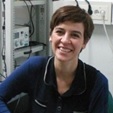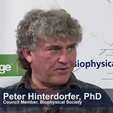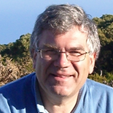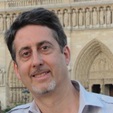|
|
|
Program > Invited Speakers

Monserrat Calleja
Monserrat Calleja is a doctor of physical sciences at the Institute of Microelectronics of Madrid (IMM). His research focuses on nanotechnology and biosensors for biological applications. She is a current member of the Higher Council of Scientific Research (CSIC) and co-founder of the nanotechnology company Mecwins, which sells nanotechnology, as sensors for medicine and exploits CSIC patents. Leading the ERC project NANOFORCELLS, which aims to study the mechanical properties of cells and their relationship to cancer she has been awarded the Miguel Catalán 2012 prize. One of its most notable developments is a nanomechanical mass spectrometer for the study of serious diseases such as cancer.

Peter Hinterdorfer
Peter Hinterdorfer is an Austrian physicist and recognized Professor at the Institute of Biophysics at the Johannes Kepler University (JKU) Linz. He focused around nanoscopic techniques in life science, bio-nano technology, and medical diagnostics. In particular, the research covers molecular recognition and transport in several molecular and cellular systems (structured sensors, cells of the immune systems, etc.). He has done pioneering work in single molecule force spectroscopy and has invented a combined topography and recognition imaging technique. Recently he did research with high-speed bio-AFM.
 Pierre Schaaf
Pierre Schaaf
Pierre Schaaf is a Professor at University of Strasbourg and performed most of his research career at the Institut Charles Sadron (ICS, CNRS) at Strasbourg and was appointed Full Professor in 1991 at the Chemistry Engineering School of Strasbourg (ECPM) and is now Director of the INSERM laboratory “Biomaterials and Bioengineering” (U1121) and remains associate researcher at ICS. He is also senior member of the Institut Universitaire de France. His research interests include polyelectrolyte multilayers, stimuli-responsive and bioactive films, polyelectrolyte complex materials and soft-mechano chemistry
 Joseph Schlenoff
Joseph Schlenoff
Joseph Schlenoff is a distinguished research professor of Polymer Science of the Department of Chemistry and Biochemistry at Florida State University (FSU). He is a distinguished scientist in the field of water-soluble polymers and biocompatible polymer composites. He has discovered a process for creating biomaterials that can be used in surgical implants designed for the extended release of certain medications and holds 30 issued and many pending patent. He is president and CEO of nanoStrata Inc., a company formed in 2000 to commercialize technology developed at FSU. He was awarded the Florida Award in 2013 from the American Chemical Society and the Robert O. Lawton Professor Award in 2016.
 Francesco Stellacci
Francesco Stellacci
Francesco Stellacci is a Professor at Ecole Polytechnique Federale de Lausanne (EPFL) in Switzerland. He heads the Supramolecular NanoMaterials and Interfaces Laboratory (SuNMiL). His interests are in solid liquid interfaces, supramolecular chemistry, and nanotechnology. His group tries to use the tools of supramolecular chemistry to create nanomaterials that have unique properties. The main fields of applications are health and environment. He has won numerous awards, among the the Technology Review TR35 ’top innovator under 35’, the Popular Science Magazine ’Brilliant 10’, and the EMRS EU40. Stellacci has published more than 100 papers and has more than 15 patent applications.
 Kislon Voitchovsky
Kislon Voitchovsky
Kislon Voitchovsky is currently an associate professor (Senior Lecturer) at Durham University, UK. His research focuses on “Molecular-level phenomena occurring at solid/liquid interfaces”. Its current research are focused on artificial "soft" systems (metallic nanoparticles coated with mixed molecules) ordered at the molecular level, interfacing with biological material such as biomembranes. His works are largely based on atomic force microscopy (AFM). Kislon Voitchovsky received the FEMS Awards – EUROMAT in 2013 and has been awarded the Liquids and Complex Fluids Group Prize in 2015.


